Hearing loss types , causes and treatment
Hearing loss
Hearing loss is the result of damage to the auditory system caused by an external factor. Hearing loss makes it difficult to listen in on discussions and follow along. You can have trouble understanding what others are saying to you over the phone, in an online conference, or even on TV.
Loss of hearing may hinder one’s professional and social life, as well as one’s capacity to take pleasure in life itself. Hearing loss is usually permanent and irreversible. However, in our hear aid center, doctors are trained in the diagnosis and treatment of hearing loss. Hearing aids and cochlear implants, both of which might be recommended, are among the methods used to treat hearing loss in the Sanskara solution.
Degree of hearing loss
Mild, moderate, severe, and profound are terms used to characterize varying degrees of hearing loss. When a person’s hearing loss falls on two different severity levels, they are sometimes given a term that encompasses both. A hearing test administered by our audiologist will reveal the extent of your hearing loss. You can search for Online hearing tests by typing hear aid near me to find the best over-the-counter hearing aids; nevertheless, if the findings indicate a hearing loss, a professional evaluation should be pursued.
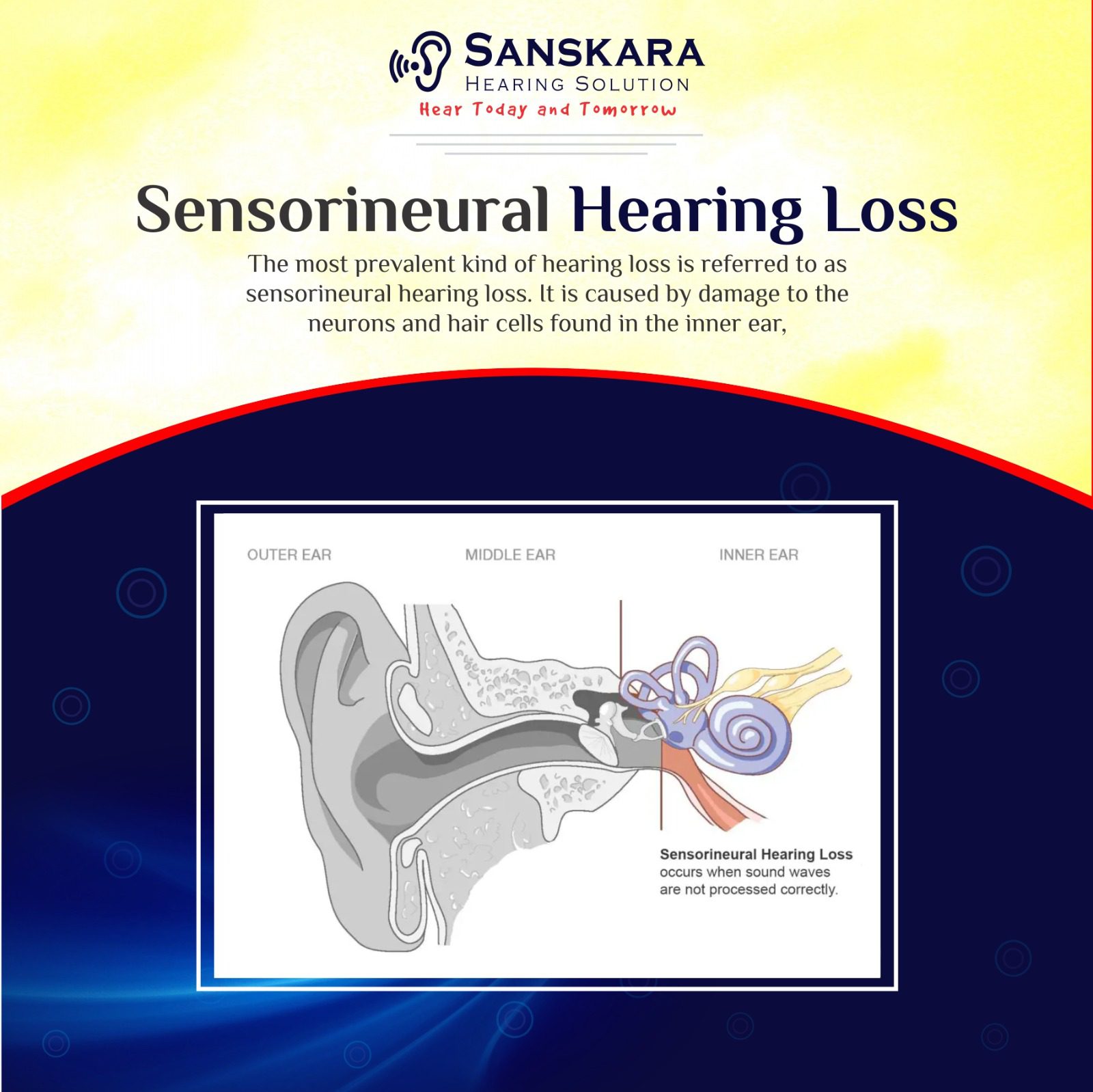
⦁ Mild Hearing Loss
Soft-spoken persons and small children may be particularly challenging for anyone with even moderate hearing loss. They usually pick up on the more pronounced vowel sounds but may have trouble with the softer consonant ones. On occasion, they may need to request that individuals repeat themselves or raise their voices politely.
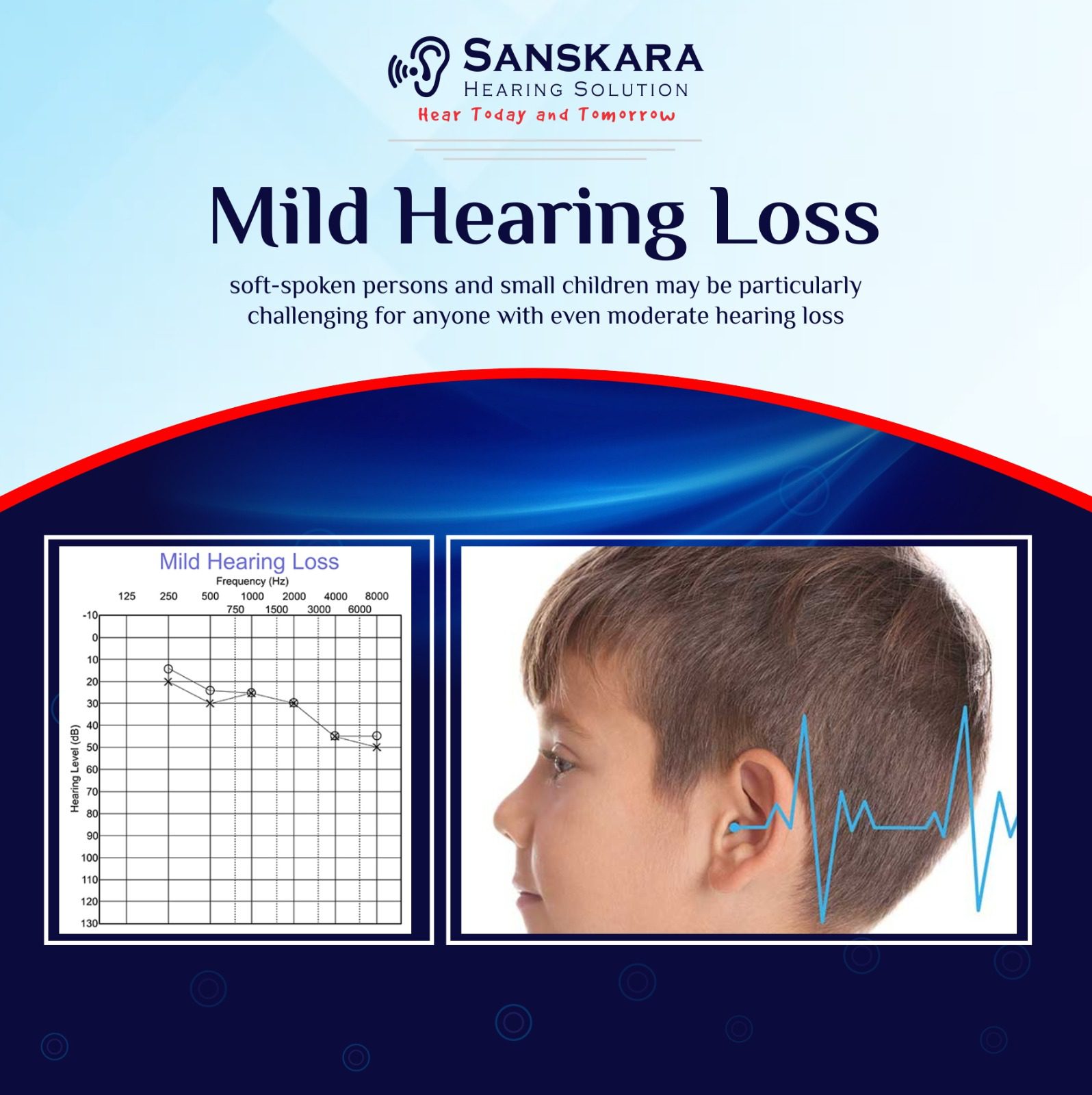
⦁ Moderate Hearing Loss
When consonant sounds are lost, it also makes it harder to perceive vowel sounds. Without a hearing aid, many people who have moderate hearing loss report that they can hear but typically cannot comprehend what is being said.
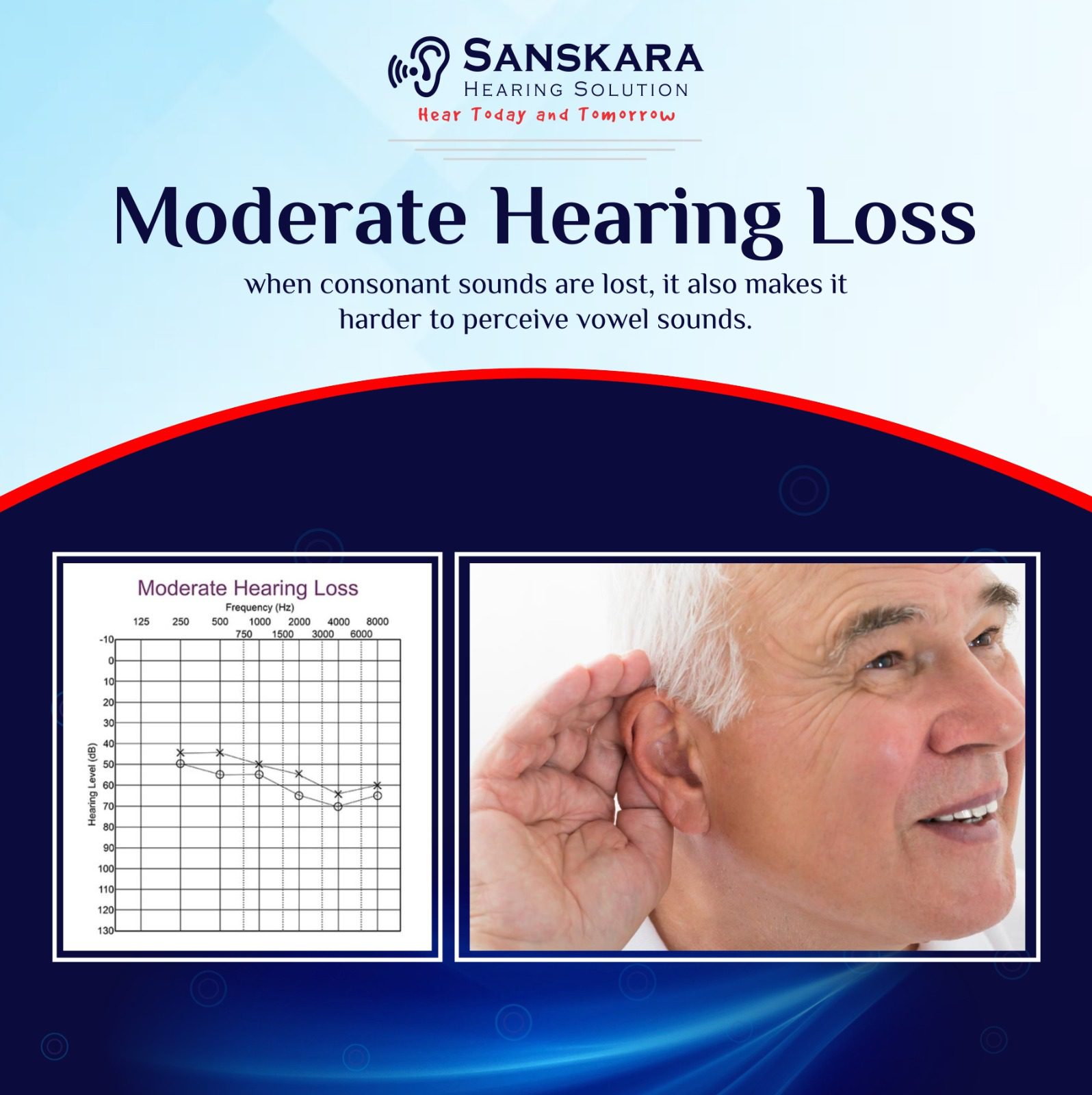
⦁ Moderately Severe Hearing Loss
Speech is unintelligible without the use of hearing aids. It may be difficult to comprehend speech even with hearing or ear aids. Increasing the volume doesn’t necessarily make things more legible.
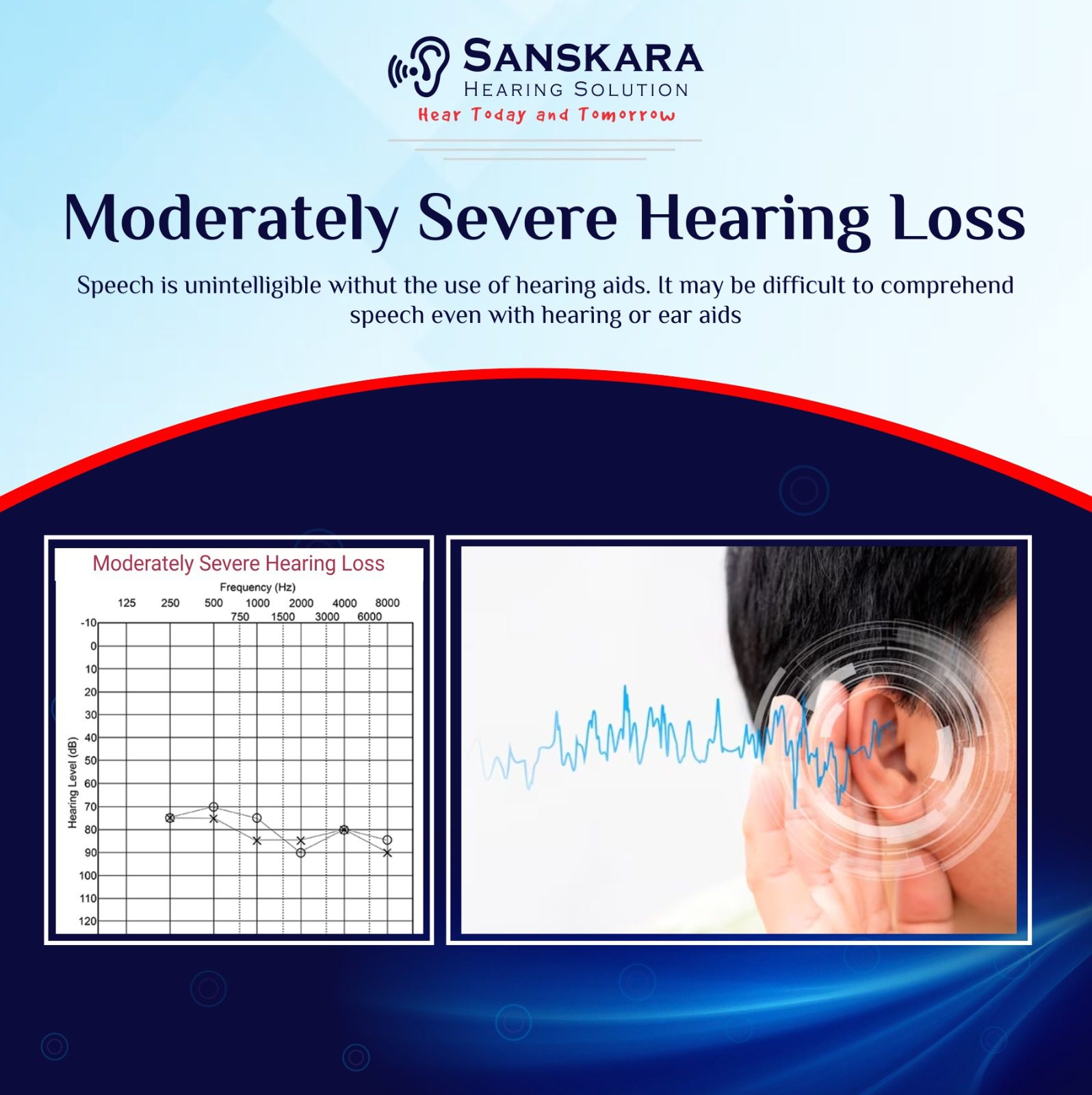
⦁ Severe Hearing Loss
Speech cannot be heard by those who do not use hearing aids or have cochlear implants.
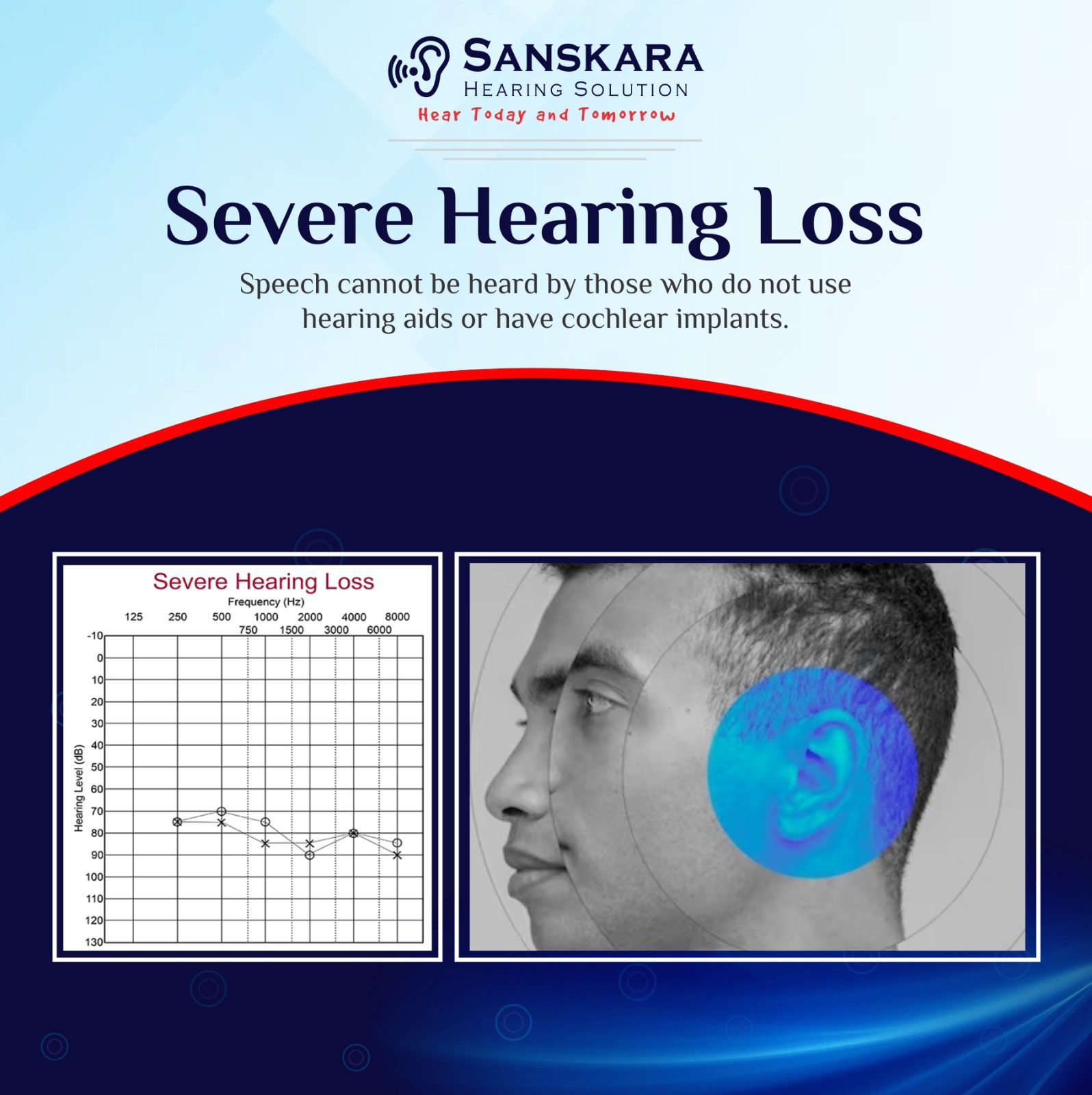
⦁ Profound Hearing Loss
Sounds like jet engines, traffic, and fire sirens may be dangerously loud for those without hearing aids.
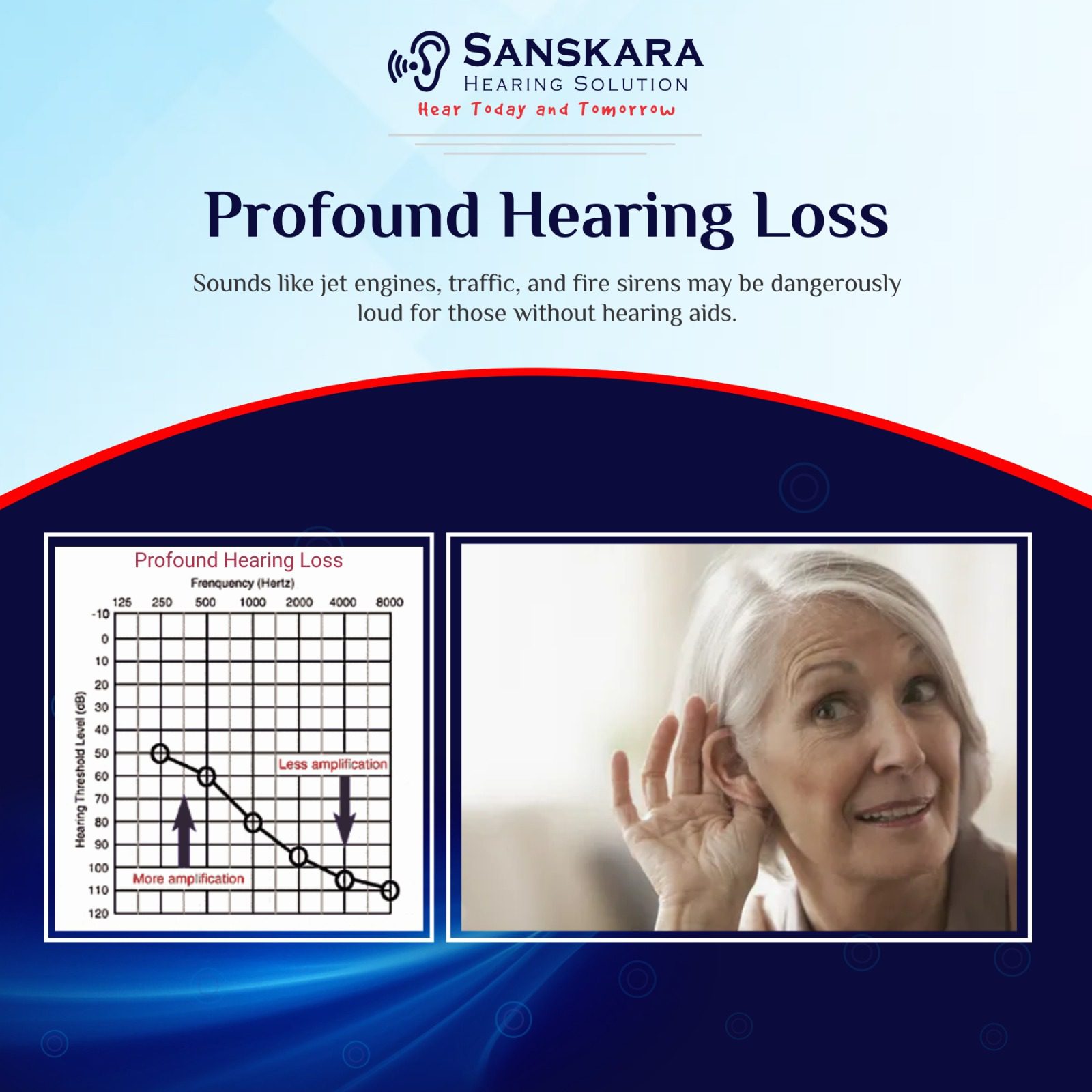
Check your hearing test from home
3 types of hearing loss
The acoustic nerve, the middle ear, the inner ear, and the outer ear are the components that make up a person’s hearing system. Hearing loss may occur if any one of these components is not satisfactorily performing its function. Different categories include the whole spectrum of hearing impairment, which may vary from hardly noticeable to completely debilitating. There are three categories of hearing loss:
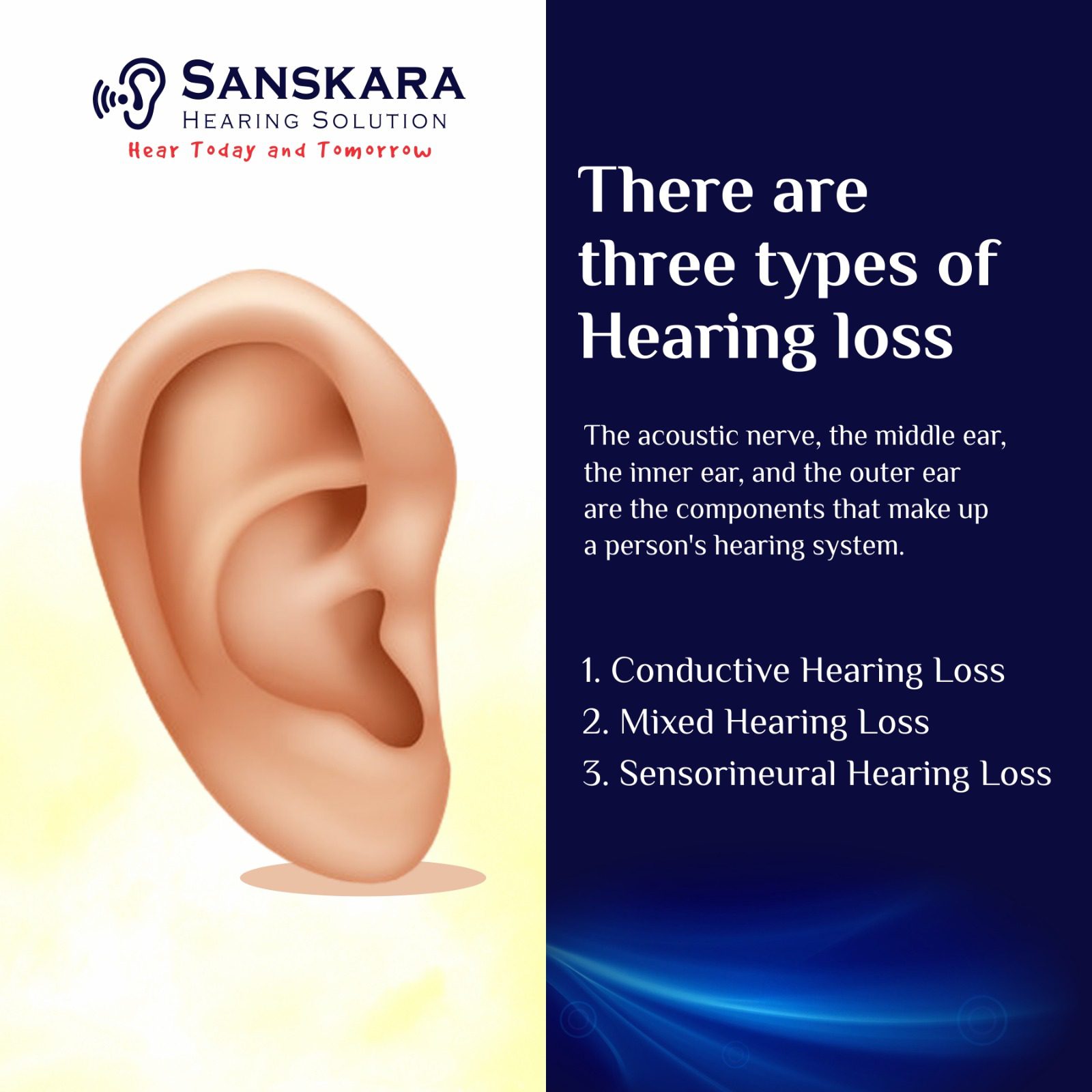
Conductive Hearing Loss
This particular kind of hearing loss takes place in the outer or middle ear, and it is characterized by the inability of sound waves to travel all the way to the inner ear. Earwax or an impediment in the ear canal may prevent sound from entering; fluid, illness, or a skeletal deformity in the middle ear can prevent sound from exiting; and a ruptured eardrum can prevent sound from entering.
Fitting hearing aids or surgical procedures may sometimes restore hearing loss caused by exposure to loud noises. Conductive hearing loss is most prevalent in youngsters, particularly those who have had several episodes of ear infections or who have placed something within their ear canal.
Sensorineural Hearing Loss
The most prevalent kind of hearing loss is referred to as sensorineural hearing loss. It is caused by damage to the neurons and hair cells found in the inner ear, which might be the result of aging, exposure to loud noises, or anything else. Hearing loss that affects the nerves that connect the inner ear to the brain is called sensorineural hearing loss.
Hearing aids are often the only effective treatment option for sensorineural hearing loss since the condition cannot be cured medically or surgically in the vast majority of cases. If you have sensorineural hearing loss, which is the most common form of hearing loss, then Sanskara Solution is the best hear care center for you.

Mixed Hearing Loss
Hearing loss may come in a variety of forms, including sensorineural, conductive, or even a mix of the two. They could first have sensorineural hearing loss and then go on to acquire conductive hearing loss as well.
Hearing testing is essential for finding out precisely what kind of hearing loss you have, and it will also assist in identifying which hearing care option would work best for you. Hearing aids may be purchased in a wide variety of sizes, styles, and technological configurations, and there are also great deals of options available that involve wearing hearing aids from the best hearing aid clinic.
Cause of Hearing loss
Extremely loud noises are a leading cause of hearing loss. Hearing loss may be caused by prolonged exposure to loud noise, such as that produced by lawnmowers, snow blowers, or music. Tinnitus may be exacerbated by exposure to loud noise. Turning down the volume on your gadgets, getting away from loud sounds, or protecting your ears with earplugs or other means may help prevent hearing loss caused by noise.
Hearing loss may also be brought on by an accumulation of earwax or fluid, which prevents vibrations from reaching the inner ear. If earwax is causing you discomfort, our hearing doctors may recommend gentle procedures to loosen the buildup. Some drugs might cause irreversible damage to the inner ear, which can lead to hearing loss. Serious infections, cancer, and heart disease might all be treated with these pills. Talk to our doctor from Sanskara Solution for hearing solutions or if you have any side effects from your medicine. Here are some causes of hearing loss based on its types:
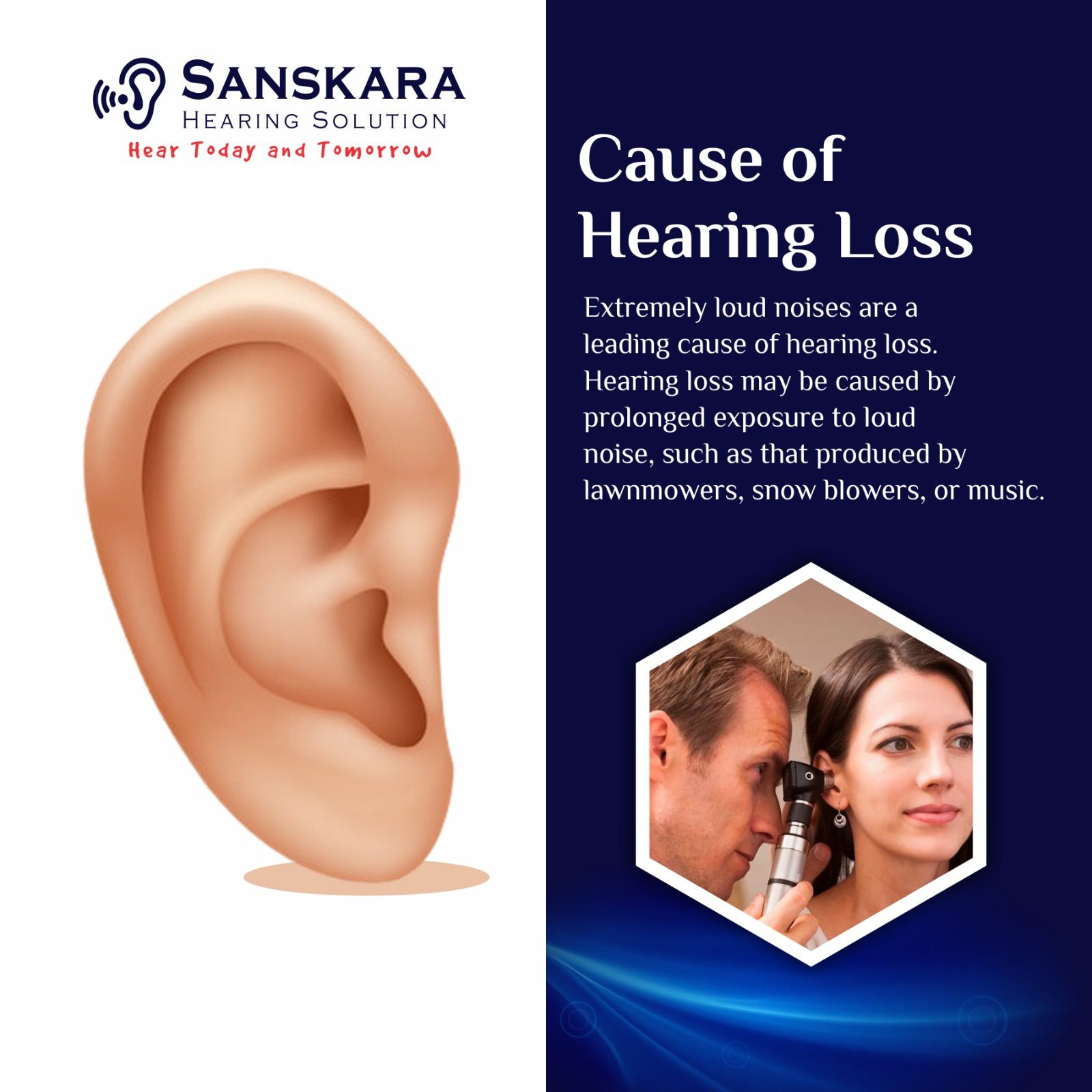
Sensorineura Hearing Loss
Sensorineural hearing loss is caused by problems inside the inner ear or the central auditory system, and it is often irreversible without medical or surgical intervention. Sensorineural hearing loss has these causes:
- Some bacterial and viral infections cause hearing loss in just one ear, whereas others may damage both ears. Common infectious diseases include measles, mumps, meningitis, chicken pox, shingles, and influenza, although this is by no means an exhaustive list. People with diabetes should get their hearing checked often by searching for the best hearing aid clinic near me
- Many studies are still being conducted. Untreated hearing loss has been linked to a faster rate of cognitive decline and dementia, although the mechanisms behind this link remain unclear. Hearing loss that runs in a family does not always affect a child at birth. Ushers syndrome, which causes progressive visual and hearing loss, is an example of a genetic condition that manifests itself late in life
- It is very rare, yet a tumor may grow between the brainstem and the inner ear. An acoustic neuroma, also known as a vestibulocochlear schwannoma, is a benign tumor that affects the auditory nerve. Hearing loss and balance issues are common symptoms of tinnitus because the tumor develops slowly, eventually squeezing the auditory nerve and perhaps affecting the neighboring vestibular nerve
Conductive Hearing Loss
Conductive hearing loss is caused by issues in the outer and middle ear and may be treated in certain cases. These factors contribute to conductive hearing loss:
- Traumatic or inflammatory injury to the pinna is common, as is a congenital deformity. Obstruction or closure of the opening to the ear canal is the sole known cause of significant hearing loss
- Hearing loss may be caused by otitis externa, an inflammation or infection of the skin around the ear canal. The eardrum is a thin membrane that is both a component of the outer ear and the middle ear. Infection or inflammation of the ear canal may readily spread to the eardrum since it is located in the outer ear
- The eardrum receives sound via the ear canal. Consequently, the inability to hear is due to the ear canal being blocked in some way. The most prevalent reason for hearing loss is excessive wax. Look no further than Sanskara Hearing Solutions for all your hearing problems
- Bony tumors, known as osteomas, may form in the ear. However, they grow to the point where they interfere with hearing. Surgery may be required to prevent hearing loss and other consequences if one or more of these reach a certain size
- The eardrum may perforate under enough stress from excessive pressure in the middle ear cavity caused by poor ventilation and drainage of the middle ear. Pain, hearing loss, and even eardrum rupture may arise from sudden and extreme changes in air pressure, such as those experienced during flight or scuba diving. When you fly or dive while suffering from a cold, you put yourself at risk for barotrauma, which may cause serious problems, including irreversible hearing loss
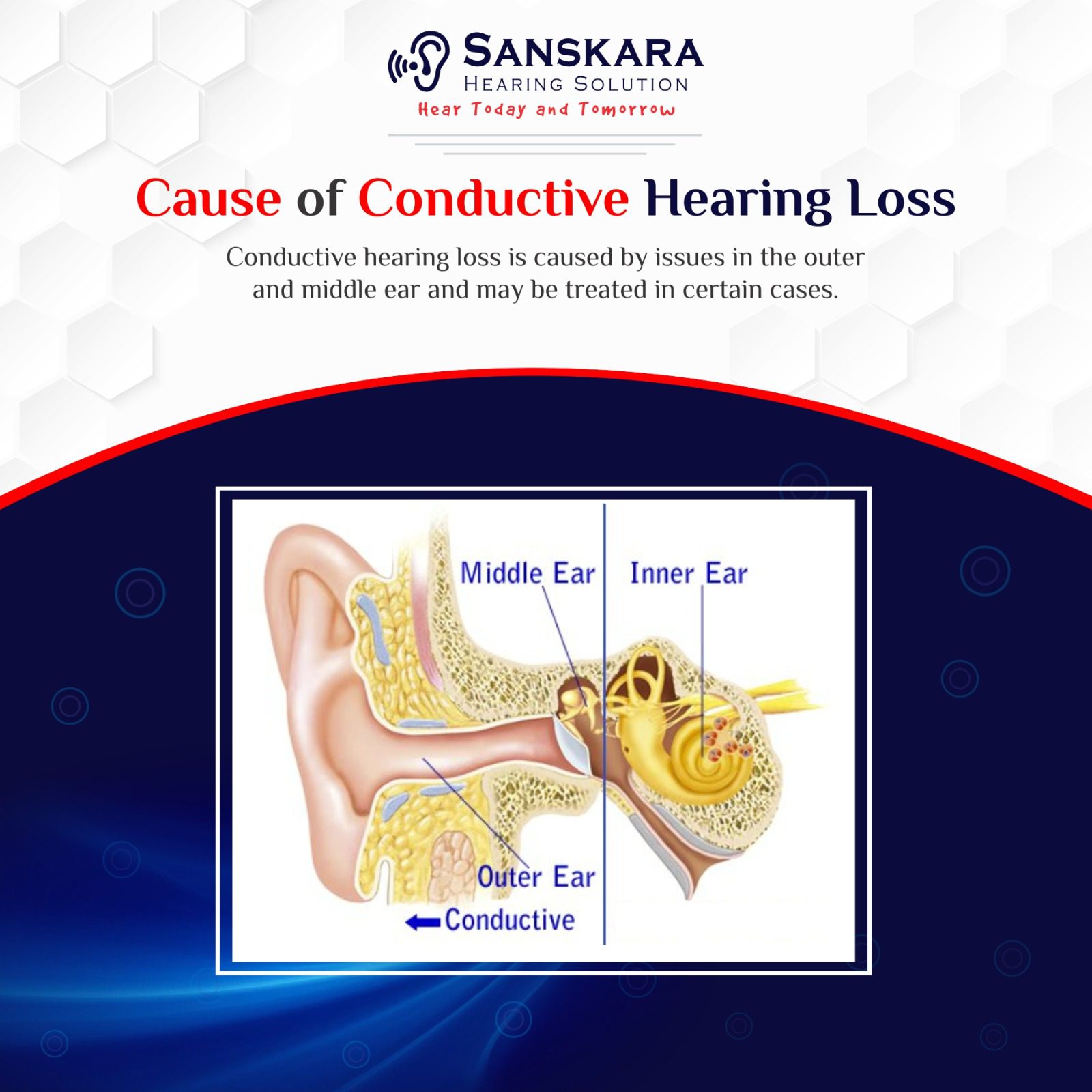
Mixed Hearing Loss
A number of different things may lead to a loss of hearing that is best described as mixed. The most prevalent reason for hearing loss is simply becoming older. Other causes of mixed hearing loss include the following:
- Ear infections may result in fluid accumulation and inflammation in the middle ear, which can cause conductive hearing loss. Infections are another potential cause of harm to the middle ear
- Hearing loss brought on by age, it’s not uncommon for people’s hearing to decline as they become older progressively. This condition is known as presbycusis, and it often results in sensorineural hearing loss.
- You run the risk of suffering from hearing loss if you are exposed to loud noises for an extended period or if you are startled by a particularly loud noise. This may cause harm to the delicate hair cells found within the ear that are responsible for our hearing

Do you suspect of hearing Loss ?
Hearing loss Diseases and symptoms
The signs and symptoms of hearing loss vary according to the kind of hearing loss and the degree to which it has progressed. For example, a person who has modest hearing loss in both ears would perceive sound in a different way than someone who has a substantial hearing loss in just one ear.
These are all strong indications that your hearing may not be as good as it was in the past if you are an adult who has had any form of hearing loss. You could find yourself in one, a few, or all of the following situations:
Tinnitus
Tinnitus is very prevalent in the elderly population. Common descriptions include a ringing sensation, although it may also be characterized as roaring, hissing, clicking, or buzzing. It may or may not return. It may be loud or mild, audible to one or both ears. In older people, tinnitus may be the earliest indication of hearing loss. It may occur with any hearing impairment.
A buildup of earwax or other debris in the ear canal is a common cause of tinnitus. High blood pressure and allergies are only two of the many illnesses that share this symptom. Some pharmaceuticals may cause tinnitus as a side effect. You can now easily book hearing tests at home with us.
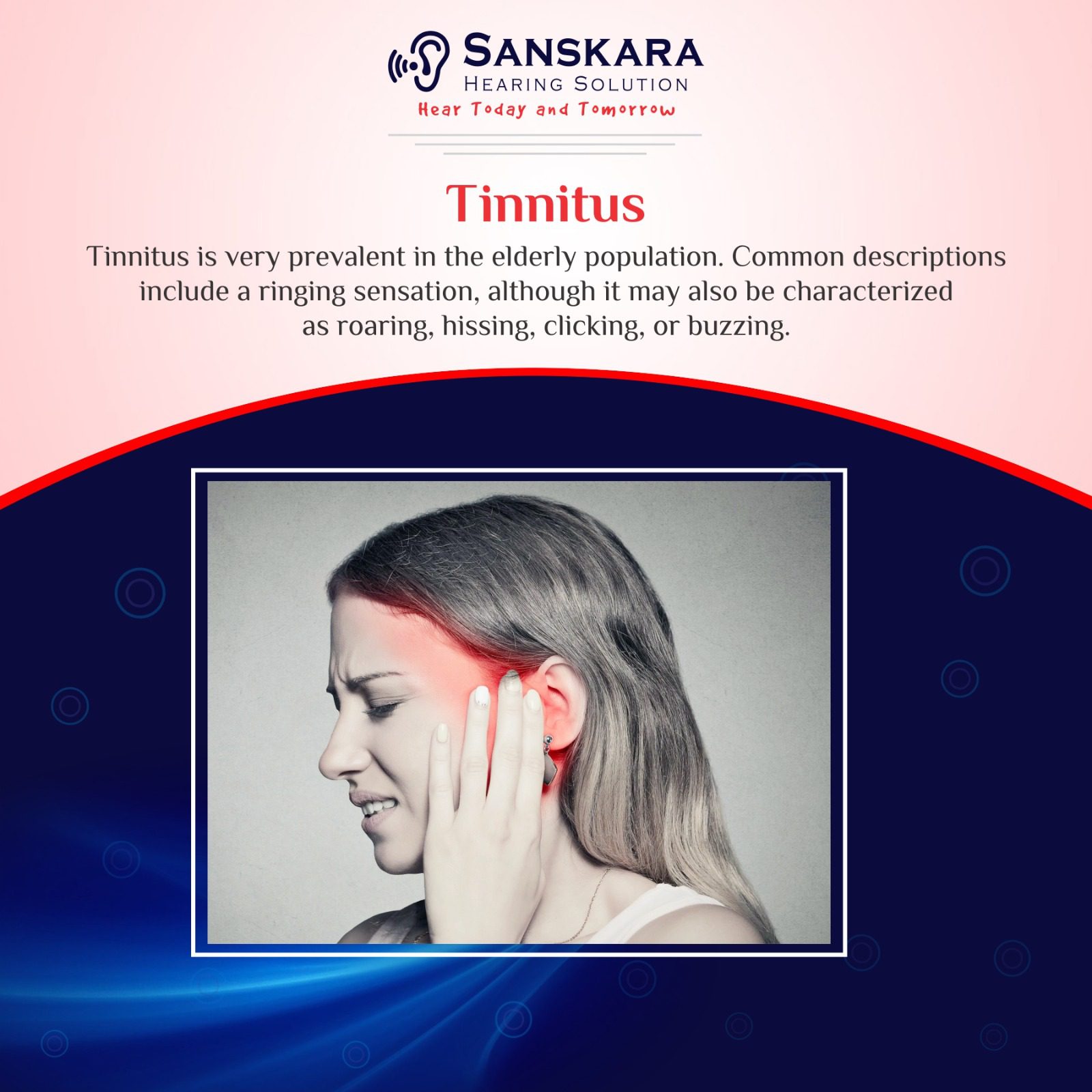
Pulsatile
Most people with pulsatile tinnitus report hearing a constant beat or whooshing sound in their ears on a regular basis. Often, the rhythm or tone will coincide with the patient’s heart rate. They will experience a quicker beat or sound as their heart rate rises and a slower beat or sound as their heart rate falls.
Some individuals may hear their heartbeats even when they are not physically exerting themselves, but those with pulsatile tinnitus have this sensation constantly.
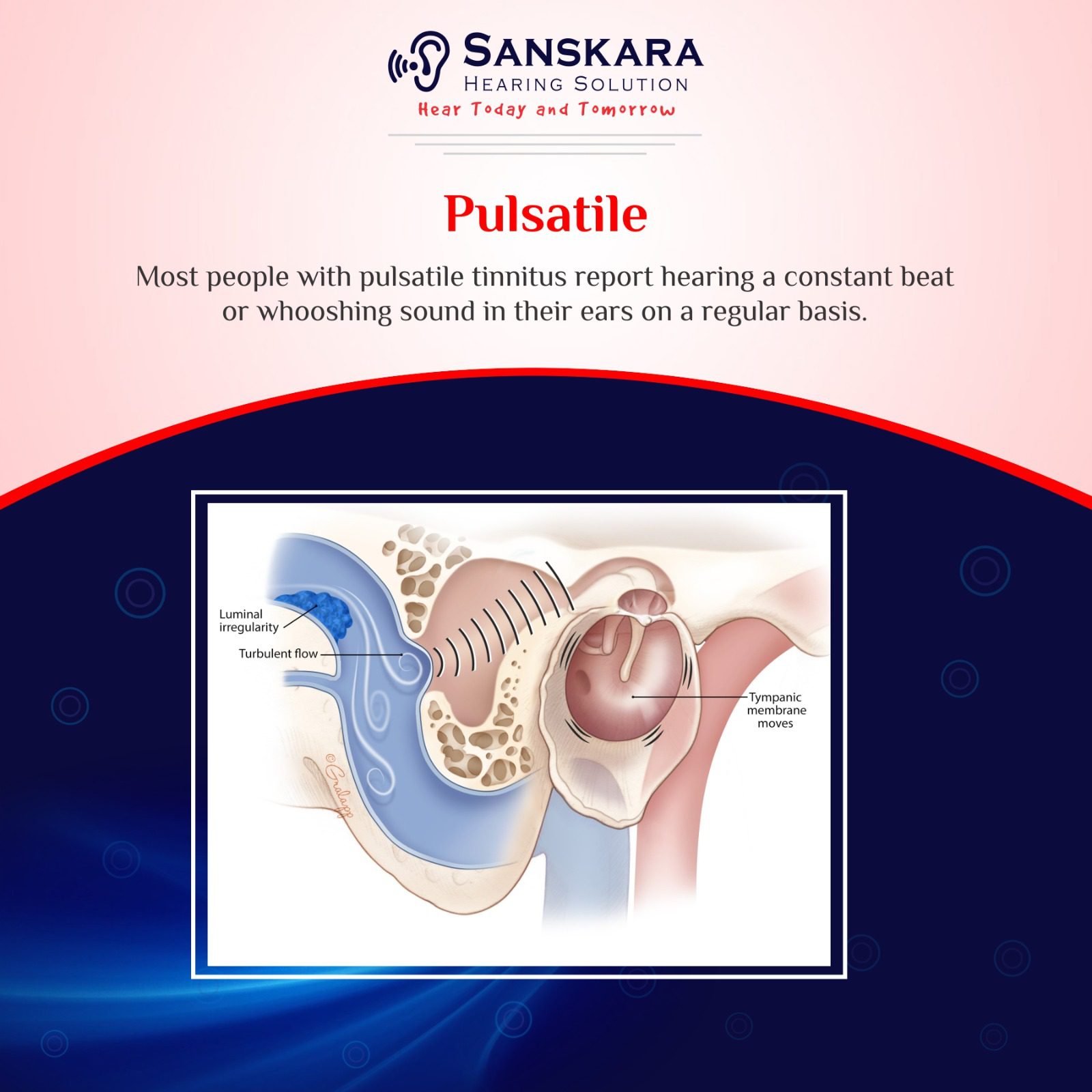
Otitis
Acute otitis media describes an infection that develops rapidly in the middle ear, the area most affected by an ear infection. The middle ear is the empty area between the eardrum and the cochlea. The tiny bones in this structure are responsible for conveying vibrations from the eardrum to the inner ear, allowing you to hear.
The Eustachian tubes are the passageways that go from the middle ear to the base of the tongue. They maintain a constant pressure inside the ear canal and stop fluid from building up in the middle ear.
Hupoacisis
The cognitive load theory postulates that hearing loss causes a degradation of auditory signals, an increase in the amount of cognitive resources needed for auditory perceptual processing, and a diversion from other cognitive activities to effortful listening, which ultimately results in a depletion of cognitive reserve capacity.
Age-related
Presbycusis describes the progressive decline in hearing that occurs with age. It is genetic and may be caused by damage to the inner ear or the auditory nerve, which carries audio impulses to the brain. Presbycusis may make it difficult to hear speech clearly or deal with loud noises.
Age-related hearing loss often affects both ears equally. Presbycusis is characterized by a progressive decline in hearing that might go unnoticed for years.
Meniere
Meniere’s disease is a disorder that affects the inner ear and may lead to episodes of vertigo as well as hearing loss in certain people. The condition known as Meniere’s disease often affects only one of a person’s ears.
Any age group is susceptible to developing Meniere’s illness. However, it often begins anywhere between the ages of 40 and 60. It is believed that this is a condition that lasts a lifetime. However, some therapies may help alleviate symptoms and decrease the impact it has on your life over the long run.
Ear wax
A buildup of earwax, also known as cerumen, may lead to a condition known as earwax blockage. This condition can also arise when earwax becomes too difficult to wash out on its own. Earwax is a natural and beneficial component of the immune system of your body.
Your ear canal will be left clean, coated, and protected thanks to its ability to trap debris and retard the formation of germs. If the buildup of earwax becomes problematic, our healthcare professional will be able to safely remove the wax by following a few simple procedures.
Hupoacisis
The cognitive load theory postulates that hearing loss causes a degradation of auditory signals, an increase in the amount of cognitive resources needed for auditory perceptual processing, and a diversion from other cognitive activities to effortful listening, which ultimately results in a depletion of cognitive reserve capacity.
Very Loud sound
Hearing aids in Mumbai are useful because they amplify ambient noises, allowing those with impaired hearing due to age or traumatic injury to noise to understand speech better and engage in conversation.
In addition to noise pollution, exposure to exceptionally loud noises like gunshots or explosions may cause permanent hearing loss by rupturing the eardrum or breaking the bones in the middle ear. Exposure to loud noise may also result in tinnitus, which manifests as a buzzing, ringing, or roaring sensation in the ears or brain.
There Preventions
Tinnitus is very prevalent in the elderly population. Common descriptions include a ringing sensation, although it may also be characterized as roaring, hissing, clicking, or buzzing. It may or may not return. It may be loud or mild, audible to one or both ears. In older people, tinnitus may be the earliest indication of hearing loss. It may occur with any hearing impairment.
A buildup of earwax or other debris in the ear canal is a common cause of tinnitus. High blood pressure and allergies are only two of the many illnesses that share this symptom. Some pharmaceuticals may cause tinnitus as a side effect. You can now easily book hearing tests at home with us.
⦁ Adjustable volume on household appliances
Turn down the volume on the stereo, TV, and radio. When using headphones, such as a portable MP3 player, extra precautions should be taken to avoid harm to the wearer’s hearing. When you add the volume of the car stereo to the volume of the engine and the traffic, the result is an unsafely high level of noise that may damage your hearing.
⦁ Protect your ears from the loudness that might cause permanent damage
If you work in a loud setting, you should always wear hearing protection, even if you are fit. Protecting your hearing from advance hearing aids is a smart idea when you’ll be around loud noises, no matter how old you are or what your hearing is like. There is really nothing worse than this when it comes to harming your hearing.
⦁ Prescription drugs can be harmful to the ears
Some drugs may also be toxic to the ear because they harm the hair cells in the inner ear. Cisplatin is one example of a chemotherapy medicine. Sensorineural hearing loss might be avoided by avoiding these drugs. Damage to the inner ear is often irreversible; however, hearing loss caused by medicine may be restored if the treatment is stopped.
Our medical staff is aware of the fact that avoiding certain drugs isn’t always feasible due to the severity of some conditions. The ENT or our audiologist, a doctor at NYU Langone can keep an eye on your hearing if one of these drugs is part of your treatment plan, and we can help you cope with the consequences if hearing loss does occur.
⦁ Parties and performances
Earplug distribution during loud events, such as concerts or nightclubs, is mandated in various countries. The volume could be turned down to a more reasonable level, but that’s not always an option in these settings. Consequently, always use the earplugs provided or bring your ear protection. Never stand near a loudspeaker or in an extremely noisy room for an extended period. Take a break from constant noise once and again. Get the hearing aid latest solutions from Sanskara Solutions.
⦁ Get some exercise and learn to relax
The health of your ears is only one of the many bodily systems that benefit from regular exercise. Also, please do everything you can to keep your stress levels in check since they are detrimental to your health in general and your hearing in particular.
⦁ Quit Smoking
Nicotine, which is found in cigarettes and other tobacco products, has been shown to be toxic to the hair cells of the inner ear. Exposure to smoke also increases the danger of hearing loss. Our medical concluded that secondhand smoking poses a significant threat to the hearing health of adolescents. Quitting smoking is difficult, but our physicians are here to assist you in getting the best hearing aid solution.
⦁ Cafes and restaurants
Restaurants and cafes can have dangerously high decibel levels. In particular, infants and young children may be subjected to harmful noise levels without their parents’ knowledge. Avoid going to noisy restaurants and cafes, or at least take note of where the speakers are located so you can keep your kids away from them.
The risk of developing noise-induced hearing loss increases with the duration of exposure to loud noise. Therefore, you should restrict your exposure and, if required, use earplugs to protect your ears. You may also keep your hearing healthy by getting timely treatment for ear issues like ear infections or fluid in the ear and by avoiding drugs that are known to cause hearing loss. We at Sanskara solution conduct hearing aid programming as soon as possible after the onset of sudden hearing loss.
Levels of hearing loss
The levels indicate the degree of hearing loss. Some use percentages to describe the severity of hearing loss. Due to the fact that hearing loss may vary across frequency ranges, no one can have a loss of either 50% or 70% of their hearing. Percentage-based classifications of hearing loss are unreliable and make it hard for the individual with hearing loss to interpret their audiogram.
Decibels (dB) or loudness levels are used to characterize varying degrees of hearing loss. There are many different types of hearing impairment. Mild, moderate, moderately severe, severe, and profound are the five categories or levels of hearing loss severity:
- The inability to perceive gentle noises is a common symptom of mild hearing loss (26 dB to 40 dB). The rustling of leaves, the song of a bird, or the hum of a refrigerator are all examples of such ambient noises. Even in quiet settings, a person with a slight hearing loss may struggle to understand what others are saying
- Difficulty hearing noises between 41 and 55 decibels is indicative of mild hearing loss (41 dB). Speech sounds, particularly higher-frequency ones like f, s, and th, become problematic for individuals. Hearing speech becomes very challenging in noisy environments
- Hearing loss in the moderate to severe range (56–70 dB) makes it difficult to understand regular conversation in quiet settings unless the speaker raises their voice. Since this group is now deaf to noises below the regular conversation level, they are having ever more trouble in social situations and noisy environments
- When one’s hearing is severely impaired (71 dB to 90 dB), it becomes difficult to carry on conversations. Extremely loud speech sounds are required for those with profound hearing loss to hear them. Group conversations may be challenging for some individuals since they need active participation from each member. Those with this loss can no longer pick up on noises below 71 decibels in volume
- Hearing loss of 91 decibels or more means that only the loudest sounds can be heard, making it impossible to carry on a conversation even with extra effort. These individuals are unable to hear noises below 91 decibels (dB)
Hearing loss is not just a nuisance, but it may also cause social isolation, emotional distress, and mental deterioration. If diagnosed and treated early on, hearing loss and its psychological consequences may be mitigated with the help of hearing instruments. The quality of your life may be enhanced by receiving therapy and the best hearing aid for seniors that helps you communicate and interact with others better.
There are alternative ways to enhance one’s linguistic abilities if one suffers from a sort of hearing loss that cannot be cured. Consultation with a speech therapist, instruction in sign language or lip reading, and the use of cutting-edge technology or best brand hearing aid are all viable options.
Hearing Loss Treatment
The most effective therapy for hearing loss is contingent on a number of variables, each of which is specific to the person being treated. A patient, in conjunction with our audiologist, will need to discuss a treatment strategy that caters to your specific requirements in the most effective manner possible. Contact us to know about the best hearing aid in India with price.
Hearing aid in noida, having earwax removed, getting implants, or undergoing surgery is all common therapeutic options. The kind and cause of your hearing loss will determine the treatment options available to you, which you can easily get by searching for an audiologist near me. If you have abrupt hearing loss, get medical attention immediately; it may improve your prognosis.
- Otosclerosis, scar tissue, and infection may all be surgically corrected, and medication and dietary changes can help in some cases of Mrniere’s illness. Research current therapies for treating hearing loss
- If you suspect that the drug you are taking is causing your hearing loss, you may find relief by switching to another. Discuss potential medication choices with your doctor
- Infectious causes of hearing loss are typically treatable with antibiotics
- Hearing loss caused by a buildup of ear wax may be treated using suction or a little looping instrument
- In most cases, a hearing aid in Pune may improve the quality of life for those who have suffered permanent hearing loss. You may increase the volume of sound by wearing one of these small devices in or behind your ear. It is important to discuss your expectations with our doctor after receiving the best hearing aids in India
- Cochlear implants are typically used in infants and toddlers but are increasingly being utilized by seniors with severe to profound hearing loss. It is one of the best hearing aids in India. Personal listening devices, which let you tune in to what you want to hear and suppress extraneous noises, are another sound-enhancement technology that may help your hearing. TV listening technologies allow you to hear the broadcast without increasing the volume.
Technology like best hearing aids and cochlear implants has helped individuals who are hard of hearing reconnect with their communities. It has been linked to a lower risk of cognitive decline and dementia. Hearing aids that may be purchased over the counter are an option for people who have mild to moderate hearing loss; nevertheless, it is still suggested that these individuals see our medical practitioner of Sanskara solution to rule out the possibility of more significant health complications. Also, note that the best hearing aid price in India depends on the severity of your illness.
